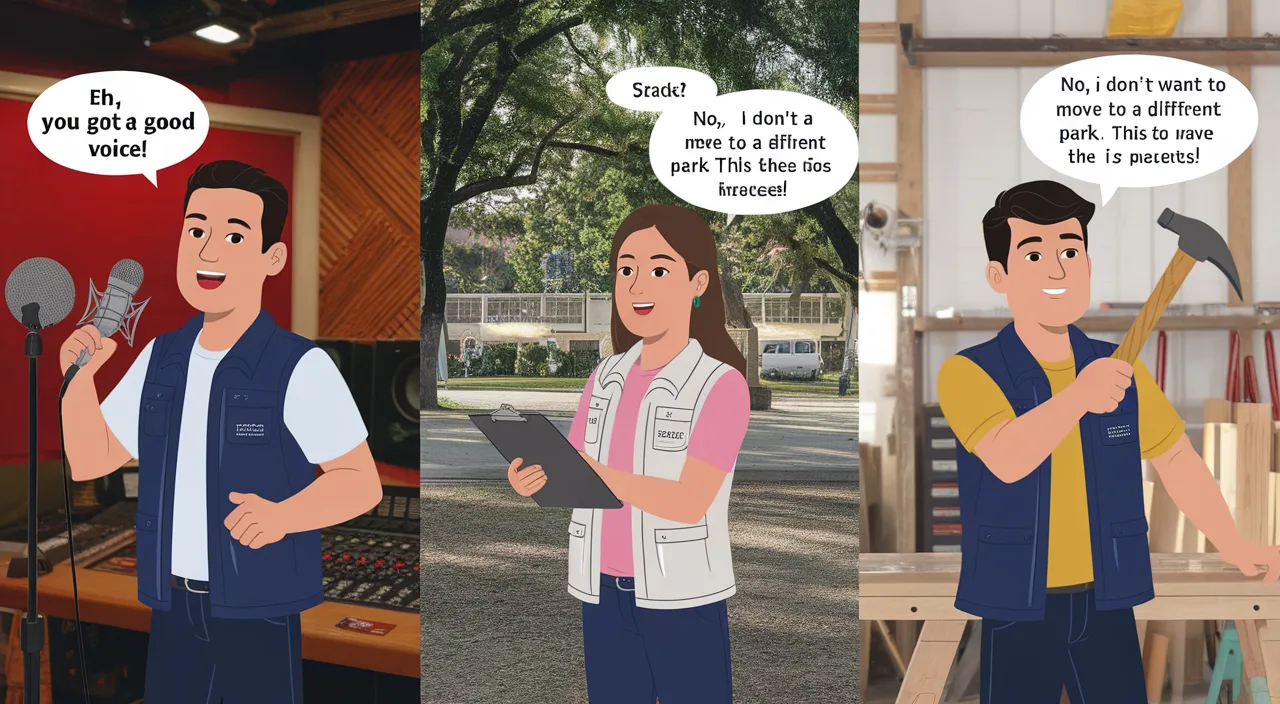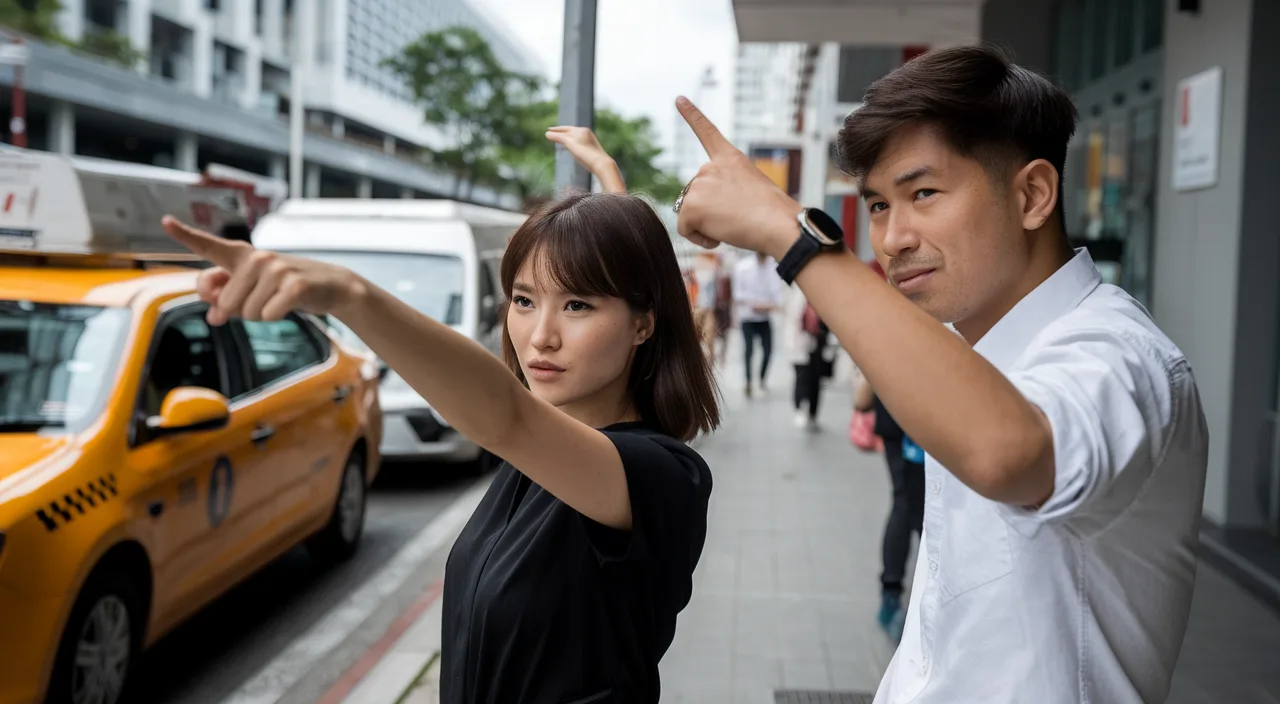Why Singaporeans Say ‘Oi’ and What Usually Comes Next
Anyone living, breathing, or stuck in a 7pm MRT jam in Singapore has definitely heard the mighty ‘Oi’. But what comes after? That’s where our Singlish magic kicks in. ‘Oi’ isn’t just a shout — it’s a declaration, a warning, a summons, or even a low-key way to say “I care about you” (with attitude, of course). Understanding this common Singlish phrase opens the door to deeper Singaporean culture.
-
Food, KaoBeiKing, Malay, Parody, Singlish/Hokkien, T-shirts
Price range: $30.00 through $38.00 Select options This product has multiple variants. The options may be chosen on the product page
TL;DR Summary
- ‘Oi’ is more than a sound — it’s a full-on mood in Singlish expressions.
- Used across all ages and social circles, but the tone determines intent in local slang.
- Can mean “Hey you”, “Stop it”, or even “Walao eh, you testing me?” depending on context.
- Deeply embedded in Singaporean culture and identity.
- Often paired with other Singlish phrases like ‘lah’, ‘leh’, ‘sian’, etc.
- This guide explores meanings, usage examples, cultural impact, and how to ‘Oi’ like a true blue Singaporean.
Introduction to Singlish Culture and Local Expressions
Before we tackle the power-packed ‘Oi’, let’s understand what makes Singlish tick. What actually is Singlish? It’s not just broken English or “improper grammar”. It’s a full-blown cultural phenomenon that defines Singaporean identity. Born from a mix of English, Malay, Hokkien, Tamil, and other dialects, Singlish is what happens when cultures collide—but like, in a very shiok way.
Singlish expressions aren’t about being grammatically correct; they’re about being real. Aunty at the wet market? She’ll give you better life wisdom than ChatGPT, using authentic local slang. Your office kopi break? More Singlish phrases than HR emails.
Decoding the ‘Oi’ Phenomenon in Singaporean Culture
Now, let’s zoom in. So you heard someone yell, “Oi!” at the hawker centre. Everyone pauses; the wind changes direction; birds fly away. That, my friend, is the magic of this powerful Singlish phrase.
-
Food, KaoBeiKing, Parody, Singlish/Hokkien, T-shirts
Price range: $30.00 through $38.00 Select options This product has multiple variants. The options may be chosen on the product page -
KaoBeiKing, Men, Singlish/Hokkien, T-shirts, Typography, Valentines
Price range: $30.00 through $38.00 Select options This product has multiple variants. The options may be chosen on the product page
What is ‘Oi’ in Singlish, really?
Originally borrowed from British English (yes, blame the colonisers), ‘Oi’ has evolved into an all-purpose exclamation in Singaporean culture. In local slang, it’s a shapeshifter — sometimes a challenge, sometimes kinship, sometimes aggression, and sometimes a casual vibe check. This common Singlish phrase carries emotional weight that goes beyond simple translation.
Examples of ‘Oi’ in Common Singlish Expressions:
- Annoyed: “Oi! Why you like that?”
- Concerned: “Oi, you okay or not?”
- Playful: “Oi oi oi, steady bom pi pi!”
- Warning: “OI. Don’t play play ah.”
See? It’s like a Swiss Army word — versatile and sharp, essential to understanding Singaporean culture.
Evolution of Singlish in Singapore and Its Cultural Impact
During our parents’ time, Singlish was something to rumah next-door — a little bit shameful, a little bit informal. Today, though, Gen Z and millennials proudly use these local expressions as a badge of Singaporean identity. And why not? It’s efficient. It’s emotional. It gives you the oomph to express yourself better than any ang moh thesaurus ever could.
In fact, Singlish phrases have evolved, not disappeared — despite being side-eyed in formal settings. WhatsApp groups, TikTok videos, even local biz ads? All can throw in some “lahs”, “lehs”, “sians” as part of authentic Singaporean culture.
Common Singlish Phrases and Meanings Every Singaporean Uses
Let’s make it power-packed. Here’s a breakout of classic Singlish expressions and what they actually mean in local slang:
| Singlish Phrase | Literal Translation | Actual Meaning |
|---|---|---|
| Walao eh | Shocked expression | Can’t believe what just happened |
| Sian | Tired/boring/dull | I’ve lost all motivation |
| Catch no ball | Did not catch | I don’t understand you at all |
| Liddat how? | Like that, how? | What are we supposed to do now? |
| Alamak | Oh no! | Disbelief or frustration at a mistake |
Impact of Singlish on Singaporean Identity and Cultural Expression
Here’s the thing — despite being unofficial, Singlish expressions are more Singaporean than kaya toast. They connect us across races, classes, and even generations. One well-timed ‘Walao eh’ and suddenly you’re bonding with the auntie behind you in line at NTUC, sharing a moment of authentic Singaporean culture.
In fact, local slang helps us define our national voice in a space filled with global influences. It’s how we stand out, how we say: “Oi, we’re not just another English-speaking country hor.” These common Singlish phrases are the foundation of our cultural identity.
Practical Guide: Using ‘Oi’ in Everyday Conversations
So how do you master the art of saying ‘Oi’ and getting it right? Here’s your cheat code for this essential Singlish phrase:
Tone Matters in Local Slang
– Soft Oi = Friendly hello or concern
– Loud OI = Warning shot
– Repeated ‘Oi oi oi!’ = Playful or seeking attention
Pair Your ‘Oi’ Properly with Other Singlish Expressions
Think of it like nasi lemak — ‘Oi’ is powerful but needs the sambal (context) to complete the Singaporean culture experience.
- Oi + “You eat what?” = Curious
- Oi + “Can move anot?” = Irritated in crowded MRT
- Oi + “Come lah, let’s go.” = Friendly nudge
Cost Guide: Learning Singlish (Time and Money)
Even if you never paid for a course, learning how to ‘Oi’ properly comes with cost — in embarrassment sometimes.
| Method | Cost in SGD |
|---|---|
| On-the-ground learning from hawker auntie | Free (but buy kopi lah) |
| Language workshop (community centres) | $20–$60 |
| Online humour/language courses | $10–$50 |
Frequently Asked Questions
Is ‘Oi’ considered rude in Singapore?
Not always. It depends on how loud, where, and who you’re talking to. Context, lah!
Why do Singaporeans use so many filler words like ‘lah’ or ‘leh’?
Singlish fillers add emotional nuance — kinda like seasoning. Without them? Bland conversation sia.
Can non-Singaporeans use ‘Oi’ without sounding offensive?
Sure — just mimic the tone and intent carefully. Wrong pitch, wrong vibe = sure kena roll eyes.
Is Singlish officially recognised?
No, but it lives strong in everyday life, local films, and even marketing slogans.
How is Singlish evolving with Gen Z?
Slang is blending with emojis, internet lingo, and even Korean or Japanese phrases. Next-gen Singlish confirm+chop damn power.
When should I NOT use ‘Oi’?
Formal settings, customer service calls, or anyplace where you might kena letter from HR.








